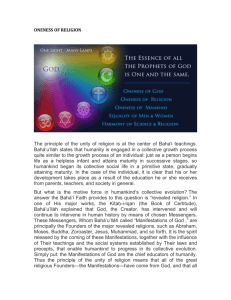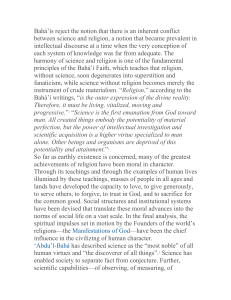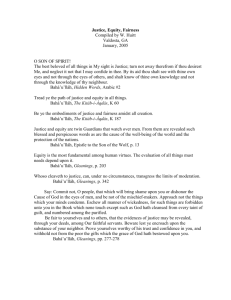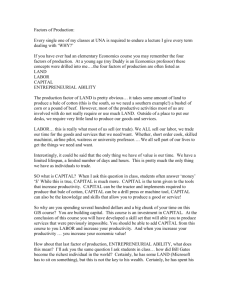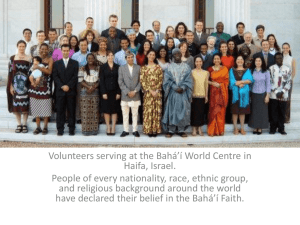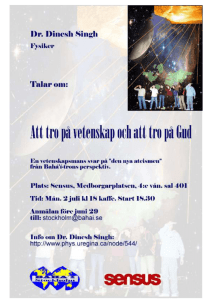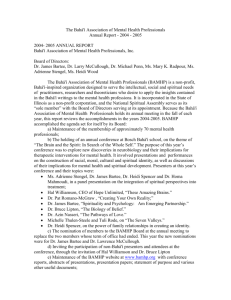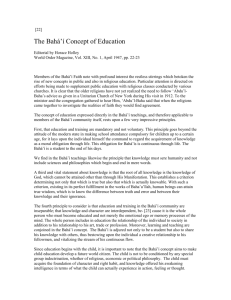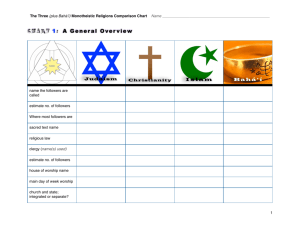New Work
advertisement
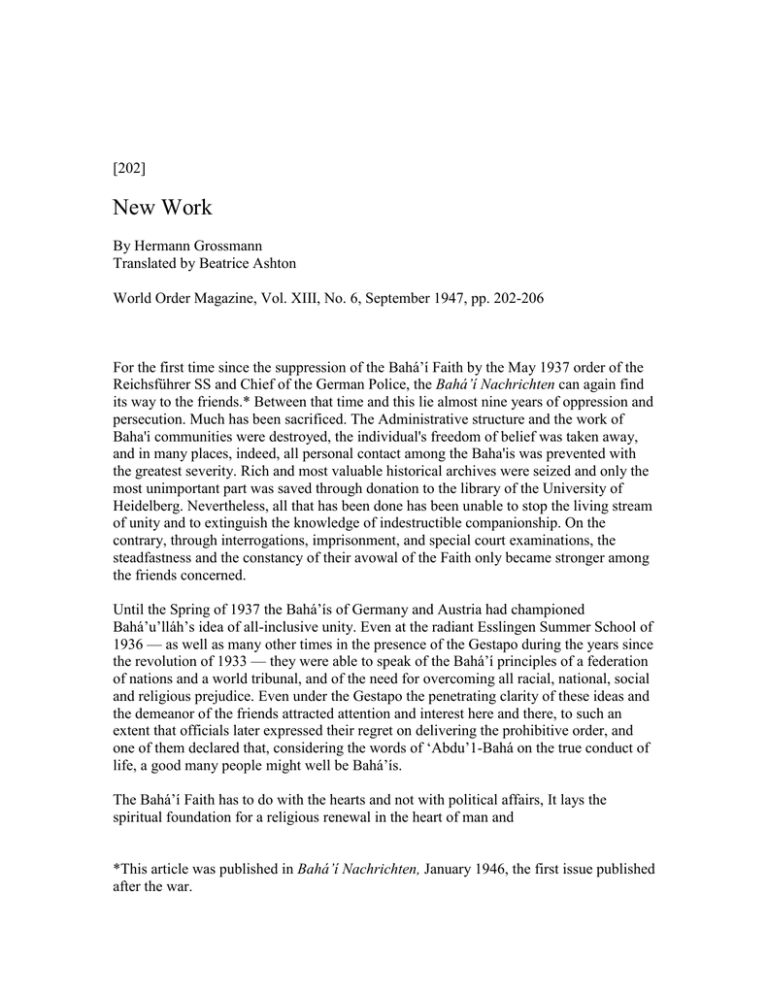
[202] New Work By Hermann Grossmann Translated by Beatrice Ashton World Order Magazine, Vol. XIII, No. 6, September 1947, pp. 202-206 For the first time since the suppression of the Bahá’í Faith by the May 1937 order of the Reichsführer SS and Chief of the German Police, the Bahá’í Nachrichten can again find its way to the friends.* Between that time and this lie almost nine years of oppression and persecution. Much has been sacrificed. The Administrative structure and the work of Baha'i communities were destroyed, the individual's freedom of belief was taken away, and in many places, indeed, all personal contact among the Baha'is was prevented with the greatest severity. Rich and most valuable historical archives were seized and only the most unimportant part was saved through donation to the library of the University of Heidelberg. Nevertheless, all that has been done has been unable to stop the living stream of unity and to extinguish the knowledge of indestructible companionship. On the contrary, through interrogations, imprisonment, and special court examinations, the steadfastness and the constancy of their avowal of the Faith only became stronger among the friends concerned. Until the Spring of 1937 the Bahá’ís of Germany and Austria had championed Bahá’u’lláh’s idea of all-inclusive unity. Even at the radiant Esslingen Summer School of 1936 — as well as many other times in the presence of the Gestapo during the years since the revolution of 1933 — they were able to speak of the Bahá’í principles of a federation of nations and a world tribunal, and of the need for overcoming all racial, national, social and religious prejudice. Even under the Gestapo the penetrating clarity of these ideas and the demeanor of the friends attracted attention and interest here and there, to such an extent that officials later expressed their regret on delivering the prohibitive order, and one of them declared that, considering the words of ‘Abdu’1-Bahá on the true conduct of life, a good many people might well be Bahá’ís. The Bahá’í Faith has to do with the hearts and not with political affairs, It lays the spiritual foundation for a religious renewal in the heart of man and *This article was published in Bahá’í Nachrichten, January 1946, the first issue published after the war. [203] in his society. It forbids participation in political matters, but it knows no compromise. The Jewish Bahá’ís then remaining were attended in the Ghetto by Bahá’í friends to the last day and they faced an all too certain death with unbroken faith in the not distant victory of an encompassing, all-merciful unity of all men with equal rights. “We desire but the good of the world and the happiness of the nations,” Bahá’u’lláh said, “yet they deem us a stirrer-up of strife and sedition, worthy of bondage and banishment … That all nations should become one in faith and all men as brothers; that the bonds of affection and unity between the sons of men should be strengthened; that diversity of religion should cease, and differences of race be annulled — what harm is there in this?” Of the publication of a German book in 1932 which presented the principles of Bahá’u’lláh, the Völkischer Beobachter wrote that no national socialist could pass by these ideas, but five years later the Bahá’í Faith was interdicted by the national body of the national socialists. Moreover, in the war the officer class was closed to the German Bahá’ís as a group, along with the socialists and the freemasons. Strange it was that Bahá’ís should have been accused of being “enemies” of the State, in view of their small number among the millions of combatant Germans, and stranger still, in the face of that same fact, that in no case was the accusation ventured during the mounting persecutions in the concluding phase of the regime or before the courts. Was the strength which supports Bahá’u’lláh’s Truth perhaps suspected and feared? In May 1937 the National Convention of the Bahá’ís of Germany and Austria, held in Heidelberg, had come to a brilliant conclusion. It had demonstrated that especially the year just past had been used by the German Baha'is, working intensively with conscious purpose, to unite the believers in a consciousness of indissoluble inner unity. Thus the Cause of Bahá’u’lláh could face with confidence an uncertain future. Weather signals had already given warning here and there of the coming storms. Immediately after the National Convention the interdiction of the Bahá’í Faith was published, and the time of inner testing began for the believers. Each one was henceforth on his own. And strange to say, while [204] mouths were closed and hands were paralyzed, in the midst of the blustering hate and murder of the world-shaking war, there grew in the people out of their need a longing which prepared the hearts of unnumbered human beings more vigorously, more ardently, than ever our words had been able to do. While in the political spheres outside Germany, the inexorable need for binding the nations together for the deliverance and security of a lasting peace brought a struggle to achieve a new and stronger international unity, within Germany also so much hearthardening prejudice released disillusion and doubt and cleared the way to a healthier inner reconstruction. Hardly ever before had the ideas and the Faith of Bahá’u’lláh encountered in Germany such a yearning and such readiness. It is the over-bridging, allsurrounding unity at which the hearts grasp in the whirlpool of dissolution: the Religion of Oneness, of reconciliation and of constructive form, not of blind faith but of certitude, springing from the Source of Being, fed by the uniting love of the creative, binding meaning of existence, and borne on the wings of scientific and religious knowledge — the spiritual foundation of a new, higher Order, on the verge of which the society of tomorrow stands ready to erect the strong edifice of indestructible solidarity and social justice. Is it not so, then, that, as Viscount Herbert Samuel, the former High Commissioner for Palestine and the great admirer of ‘Abdu’l-Bahá expressed it, “other religions and creeds must consider how they may contribute to the ideas of a community of the world, but the Bahá’í Faith has for its aim almost exclusively the furthering of the communion and unity of mankind”? It is a changed world which we German Bahá’ís view with rewon freedom, after an enforced seclusion of several years’ duration. We witness the change day by day in our utterances, in the many communications and in personal contacts. The world no longer needs to be laboriously convinced; it is already convinced even before it has heard the call aright. It is impatient, from the compulsion of doubt, and is ready to follow the Path, if we but help. Thus the time of inner testing has suddenly become, after nine long years, a time of outer testing. We no longer have any right to ourselves or to contemplative silence. In the tests of persecution we have learned to free our- [205] selves from both of these. Now is the time to work, in order to serve all humanity in this redemption, to work and then to work ever more, with unheard-of effort and selfless devotion to grow beyond ourselves, so that all the wishes of those who wait the vivifying Bread of the Faith of Bahá’u’lláh, the spiritual formation of one world, may be redeemed. Little more than a decade now separates us from the time as- signed by ‘Abdu’l-Bahá for the beginning of the fulfillment of the prophecy of Daniel; “Universal peace will be firmly established, a universal language promoted. Misunderstandings will pass away. The Bahá’í Cause will be promulgated in all parts and the oneness of mankind established.” A decade is a short time, although too long from the point of view of the unspeakable sufferings of a torn humanity. Only the utmost effort will make it possible to solve the vast problem before it is “too late.” “Why,” ‘Abdu’l-Bahá asked in November 1912 at a meeting in Paris, “is man so hard of heart? It is because he does not yet know God. If he had knowledge of God he could not act in direct opposition to His laws; if he were spiritually minded such a line of conduct would be impossible to him. If only the laws and precepts of the prophets of God had been believed, understood and followed, wars would no longer darken the face of the earth. “If man had even the rudiments of justice, such a state of things would be impossible. "Therefore, I say unto you pray — pray and turn your faces to God, that He, in His infinite compassion and mercy, may help and succor these misguided ones. Pray that He will grant them spiritual understanding and teach them tolerance and mercy, that the eyes of their minds may be opened and that they may be endued with the Gift of the Spirit. Then would peace and love walk hand in hand through the lands, and these poor unhappy people might have rest. “Let us all strive night and day to help in the bringing about of better conditions. My heart is broken by these terrible things and cries aloud — may this cry reach other hearts! “Then will the blind see, the dead will be raised, and Justice will come and reign upon the earth. I beseech you all to pray with heart and soul that this may be accomplished.” One may be pardoned here if he writes of the past, in order [206] that each individual may be guided by its lessons. It should be no more than a brief backward glance which, in thanks for the victory and from the realization of wisdom (the goal of all tests), finds strength for the future. We unveil to the believers traveling the path of certitude the picture of a renewed world with renewed hearts. Before us is the Light and behind us the darkness sinks into yesterday.
